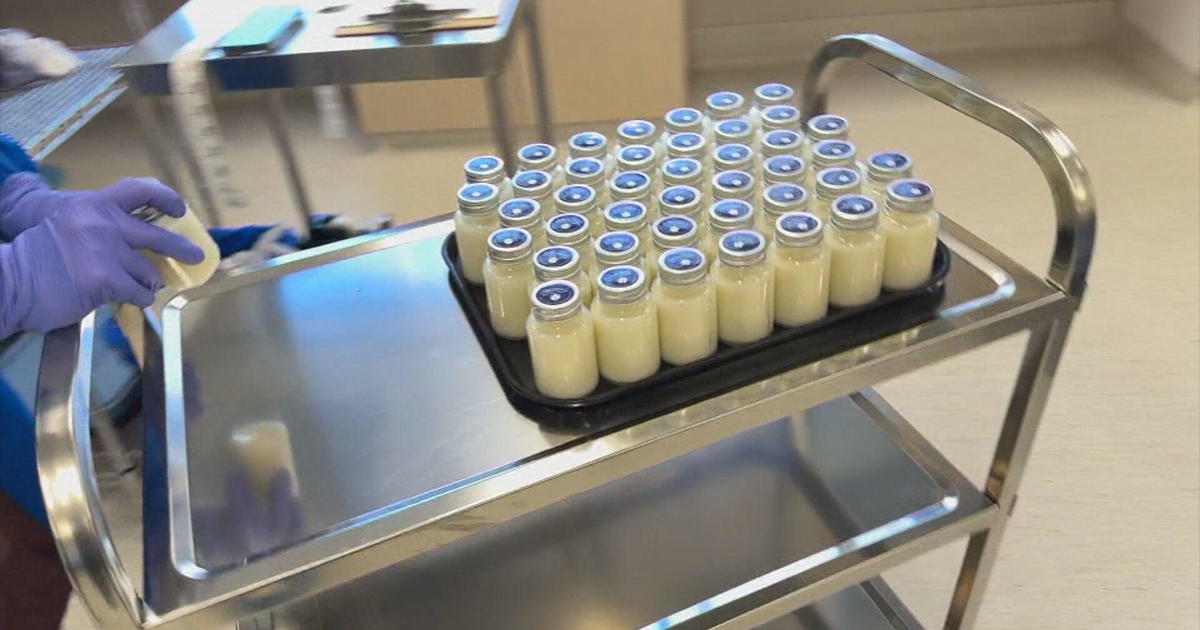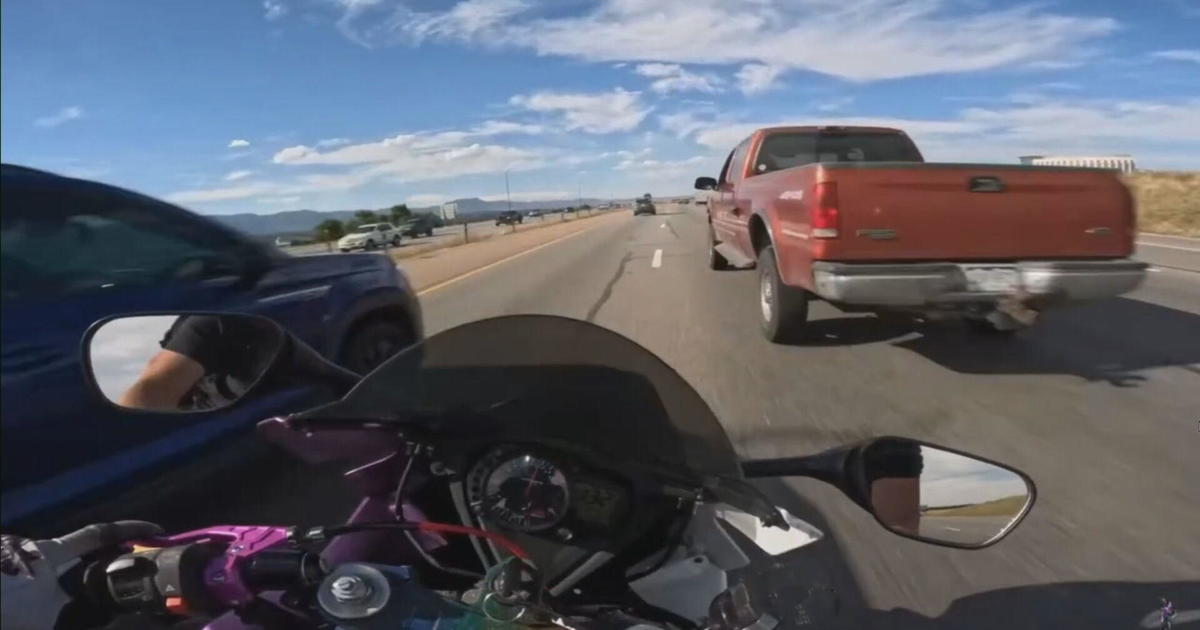Technology Helping Colorado Athletes With Academics
STEAMBOAT SPRINGS, Colo. (AP) - Ryan Heckman didn't wind down his Olympic skiing career in 1995 because of an injury, a disappointing finish or a lack of grit. At 21 years old, he stopped to pursue an education.
"I remember the day in April very well," Heckman said Thursday from his office in Denver as he recalled his decision to mostly quit skiing competitively at the end his most successful Nordic combined winter season. "I was having these fears that I wouldn't be able to flourish when I was done skiing because I just felt like I was behind academically."
Heckman, who attended The Lowell Whiteman School's rustic campus north of Steamboat Springs from 1990 to 1993, said his spot on the U.S. Ski Team inevitably drew him away from the classroom for weeks at a time. He estimated that during his three years of high school, he was present only a year. The missed classes, tests and lectures weighed heavily on his decision to stop skiing and enroll at the University of Colorado to study finance.
"On a personal level, I feel that if I had been able to pursue an education while I was skiing, I would have gone to at least one more Olympic games," said Heckman, now a private equity investor.
Reflecting on his choice to quit skiing, he said it was difficult for him to balance his rigorous athletic career and his education at Whiteman.
But with new classroom technology and a tenacious effort by teachers to accommodate the schedules of their athletic students, much has changed for the Yampa Valley's aspiring Olympians.
Meg Morse's Algebra II lesson on Thursday at Whiteman was recorded by a small camera and beamed onto a Vizio flat-screen TV perched at the back of her classroom. Later that day, the recording was uploaded to YouTube.
"I'll send a link to all of the skiers and snowboarders who were absent," said Morse, Whiteman's academic dean. The recording devices also can capture notes written by teachers on an electronic board and are set up in several Whiteman classrooms. They ultimately allow athletes competing with the Steamboat Springs Winter Sports Club to maintain a digital connection with their teachers.
Morse said she utilizes the recordings, her email account and Google Docs, where she uploads assignments and syllabuses, to stay in touch with the students who miss anywhere from 20 to 60 days of class each winter.
Technology is a rapidly evolving tool and a benefit for students at Whiteman, Technology Director Tony Hillier said. By fall, he is hoping the school can use its cameras and televisions to "beam" absent skiers and snowboarders into the classroom.
"Right now, we're not using the technology we have to its fullest capability," he said. "We currently have a recording system that is like TiVo for the class, but we're working on using our videoconferencing equipment to actually bring students who are off competing into the classroom."
He also said a new content management system at the school would allow teachers to more easily post and receive assignments electronically.
Junior Vreni Lupear, a competitive Alpine skier, estimates she will miss 25 to 30 days of school at Whiteman before her winter season is over. But at school Thursday, she effused confidence as she talked about how she has stayed on top of her assignments and tests even as she trains and competes in places as far away as Austria.
"The only thing I ever get worried about is making up tests, but I work with my teachers when I get back to find a time when I'm prepared to take them," she said.
She added that the ability to pause and rewind taped lectures, which she can access on a laptop while she's absent, has helped her better navigate the lesson plans. It's a challenge to make up for the absences, she said, but she continues to strike a balance between her athletic aspirations and her coursework. Last year, she was named to Whiteman's dean's list for her first trimester academic performance.
Student athletes like Lupear must maintain a C or higher in all of their classes at Whiteman to continue competing, and teachers help develop their makeup schedules.
"The students here feel we are sort of their partners in making sure they keep up with their schoolwork," Morse said. "We're looking for that balance between strong college prep academics and them achieving their athletic goals."
In recent years, Whiteman has sent a teacher to the Fall Alpine Ski & Scholastic Training programs in Austria and Summit County to oversee the education of their students. Gina Wither, coordinator of Whiteman's ski and snowboard program, added that she often meets with students outside class hours to help them get caught up with coursework.
"We do a lot here to make sure the kids do not fall through the cracks," she said.
And the accommodation of winter athletes is not limited to Steamboat's private schools.
After she finished mixing barium nitrate and sodium phosphate Monday at Steamboat Springs High School, senior Martha Anderson, an Alpine skier, said her chemistry class is unique because her teacher doesn't lecture much in person. Instead, he relies on podcasts.
"It took some getting used to, but now I think it's more convenient, especially because I miss so much class," she said.
Students do their homework in class and watch and listen to Nat Cooper's lectures at home via a podcast or a video posted to his website. Cooper this year flipped the classroom in part to accommodate skiers and competitive athletes like Anderson. If they miss a class, students still can keep up with lectures and work on their homework.
"I don't know that this model is a good fit for all teachers, but I think a lot of them - especially in Steamboat, where we have a number of absences from student athletes - would love it once they started to do it," Cooper said.
He said he also flipped his classroom in an attempt to improve student achievement and expand the amount of material he can deliver to students.
"With my chemistry class, I will probably teach 1 1/2 times the amount of material I've ever taught, and students will do more labs than ever before and feel better about it," he said.
"I'm using technology to create a more intimate classroom, not a less intimate classroom."
Former Olympic skiers are well aware of the new tools that strengthen the bond of education and athleticism.
Nearly 17 years after the end of his competitive skiing career, Heckman said an athlete's best chance to balance competition with education still starts at home.
"There seems to be an ever-increasing number of parents who are pushing their kids to be world-class athletes sooner and potentially at the expense of character, education and other things," he said. "That's why eligibility requirements need to start at home. It shouldn't be the responsibility of school. But there's an awareness, I think, that as our society has become more dependent on college education, parents and coaches are more focused on making sure education is part of the program."
He said parents should teach their students early that skiing and snowboarding is a means to an end, not an end in itself. Heckman added that he is encouraged by the strides athletes are able to make academically today with new tools.
"I'm happier for them than they are for themselves because you only realize how important education is when you don't have one," he said. "For them to be able to pursue their dreams without sacrificing their futures is really spectacular."
(© Copyright 2012 The Associated Press. All Rights Reserved. This material may not be published, broadcast, rewritten or redistributed.)



